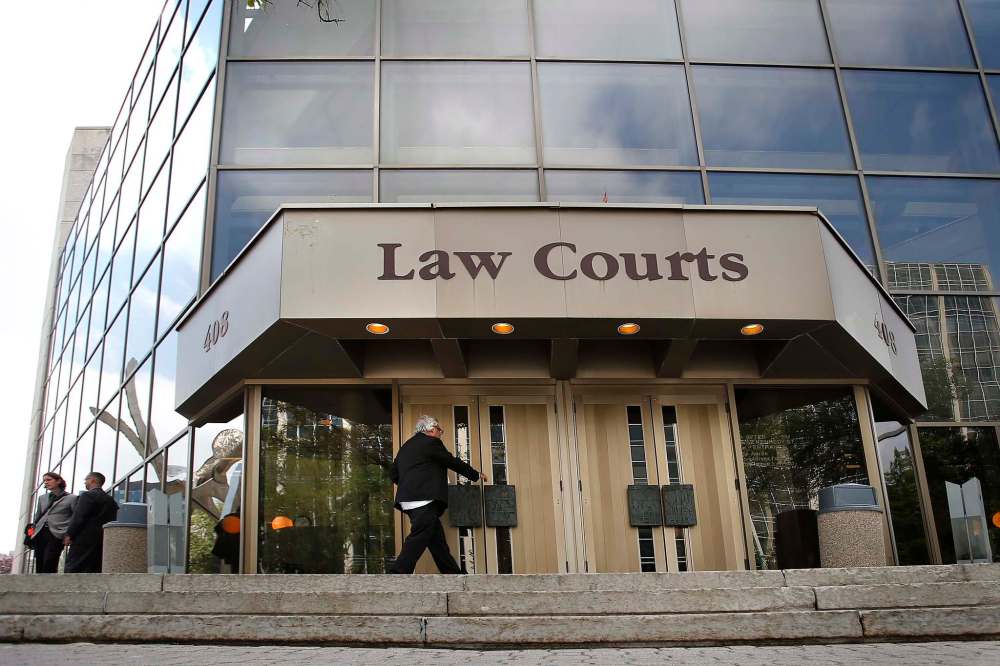Manitoba Tories score win in legal battle over wage freeze
Advertisement
Read this article for free:
or
Already have an account? Log in here »
To continue reading, please subscribe:
Monthly Digital Subscription
$0 for the first 4 weeks*
- Enjoy unlimited reading on winnipegfreepress.com
- Read the E-Edition, our digital replica newspaper
- Access News Break, our award-winning app
- Play interactive puzzles
*No charge for 4 weeks then price increases to the regular rate of $19.00 plus GST every four weeks. Offer available to new and qualified returning subscribers only. Cancel any time.
Monthly Digital Subscription
$4.75/week*
- Enjoy unlimited reading on winnipegfreepress.com
- Read the E-Edition, our digital replica newspaper
- Access News Break, our award-winning app
- Play interactive puzzles
*Billed as $19 plus GST every four weeks. Cancel any time.
To continue reading, please subscribe:
Add Free Press access to your Brandon Sun subscription for only an additional
$1 for the first 4 weeks*
*Your next subscription payment will increase by $1.00 and you will be charged $16.99 plus GST for four weeks. After four weeks, your payment will increase to $23.99 plus GST every four weeks.
Read unlimited articles for free today:
or
Already have an account? Log in here »
Hey there, time traveller!
This article was published 13/10/2021 (1524 days ago), so information in it may no longer be current.
The Manitoba PC government has won its appeal of a lower court ruling that found its controversial public-sector wage freeze was unconstitutional.
Wednesday’s decision was a blow for labour groups that represent some 120,000 civil servants.
Following the release of the Manitoba Court of Appeal’s ruling, the Partnership to Defend Public Services said it is disappointed. On its behalf, Manitoba Federation of Labour president Kevin Rebeck said the group would review the decision.

“While this is not the outcome we were hoping for, we will continue to fight for the rights of workers to collective bargaining,” Rebeck said in a news release.
“We will be reviewing the Court of Appeal’s ruling in detail and we expect to come to a decision about our next steps in the near future — including the prospect of an appeal to the Supreme Court of Canada.”
Wednesday’s decision overturns last year’s ruling by Manitoba Court of Queen’s Bench, which found the government’s wage-freeze law, Bill 28, was unconstitutional.
In June 2020, trial Judge Joan McKelvey called the government’s 2017 Public Services Sustainability Act “draconian,” and ruled it violated the charter right to association and collective bargaining.
Bill 28, which was passed by the government but never proclaimed into law, called for two years of wage freezes followed by pay hikes of no more than 0.75 per cent and one per cent in the third and fourth years of any new public-sector agreement. The bill was roundly criticized by labour groups for robbing them of the right to collective bargaining.
During the Court of Appeal hearing June 3, lawyer Heather Leonoff, acting for the provincial government, said the trial judge failed to properly take into account a precedent-setting Supreme Court of Canada collective bargaining case involving the federal government and the RCMP.
“Broad-based, time-limited wage-restraint legislation is constitutional and does not violate… the charter,” Leonoff told a three-member appeal court panel.
On Wednesday, there was one glimmer of hope for labour groups: the Court of Appeal upheld the ruling the Tories interfered in the collective bargaining process between the University of Manitoba Faculty Association and the University of Manitoba in 2016.
Rebeck said the Tories have “continually thanked Manitoba’s public-sector workers for their service throughout the COVID-19 pandemic,” and said if they “truly valued these workers, then it would stop fighting them in court and stay out of their way while they negotiate fair deals with their employers.”


